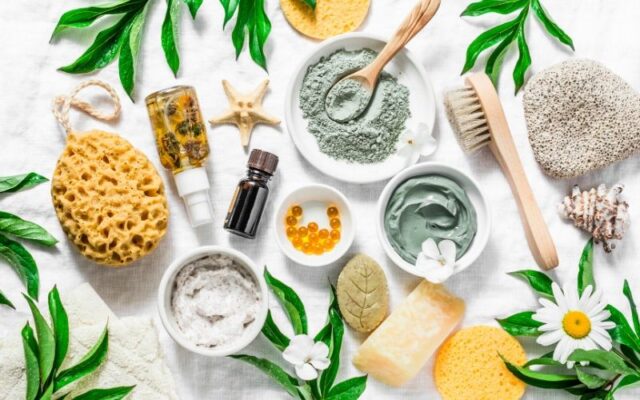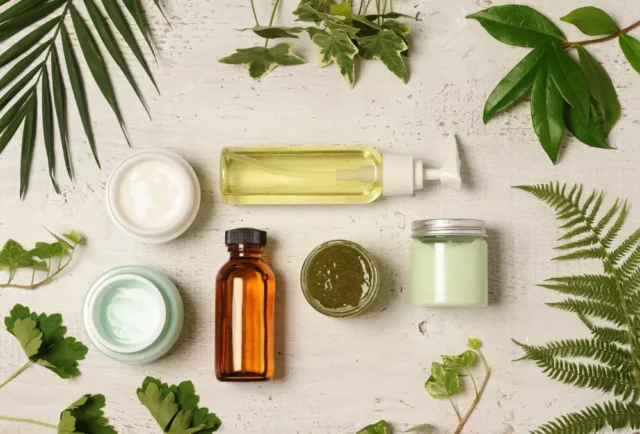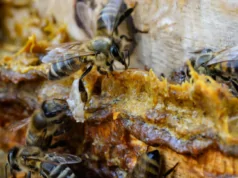
Going vegan is more than just a dietary preference – it’s a lifestyle! Not only can veganism make a positive impact on your health, but it also has fantastic effects on your skin health. But while you may be doing great with maintaining a vegan diet, skincare products can often be sneaky culprits when it comes to animal-derived ingredients.
Read along as we list out the top ingredients you should avoid if you are on a vegan skincare routine!
Common Ingredients to Avoid in Vegan Skincare

Vegan skincare has become an increasingly popular beauty trend in recent years. While veganism is often associated with food, many cosmetics can also contain animal-based ingredients such as beeswax, lanolin, and collagen. Knowing what you should avoid when it comes to this type of skincare can be tricky—which is why we’ve compiled a list of common ingredients that vegans should avoid when purchasing cosmetics and toiletries products.
Beeswax: Beeswax is a common ingredient found in lip balms and body creams. It’s derived from bee hives, so it’s not suitable for vegans. Alternatives include candelilla wax or carnauba wax—both of which come from plants rather than animals.
Honey: honey is frequently used as a natural sweetener in some skin care products, but it comes from animal sources so it isn’t suitable for vegans. A plant-based alternative would be agave syrup or molasses instead.
Stearic Acid: stearic acid is another common skin care ingredient made from animal fats, including those of cows and pigs. You should try to look out for vegetable-derived stearic acid which is more widely available nowadays.
Collagen: collagen is a major component of human connective tissue and skin; it’s commonly derived from cow hides or cartilage but there are now marine-based alternatives made without harming any animals (such as sea plants).
Isopropyl Palmitate or Myristate: these are both derivatives of animal fatty acids—often found in foundations, bronzers and other makeup products—so should be avoided if possible. Alternatives include vegetable glycerin or aloe vera oil instead.
Keratin/Lanolin: keratin or lanolin are both derived from sheep wool; seek out the plant based alternatives such as shea butter if you follow this kind of lifestyle.
It’s important to remember that many vegan skincare products may still contain some synthetic ingredients that may have been tested on animals—so always check the labels before you buy!
Reasons to Avoid Non-Vegan Ingredients

It is becoming increasingly popular as more and more individuals recognize the importance of animal welfare, sustainability and health. Non-vegan ingredients – substances derived from animals – can be found in a range of beauty products from lip balm to makeup and even toothpaste. Animal-derived ingredients are a form of animal exploitation, not to mention their potential toxicity for both individuals and the environment.
Here are some reasons why you should avoid these ingredients when choosing your skincare products:
Unethical: Animal-derived ingredients are produced through cruelty to animals. These practices include live plucking, force feeding, confinement in small cages and genetic manipulation. Such practices impact animal welfare in an extremely negative way and should be avoided whenever possible.
Unsustainable: Humane practices aside, the production of non-vegan ingredients often require factory farming which are highly unsustainable behaviors such as deforestation, monoculture operations that create monocultures that erode soils, use up resources like water and energy, create greenhouse emission and lower wildlife biodiversity levels.
Unsafe: Many common skin care products contain dangerous toxins derived from animals such as mercury found in thimerosal preservatives or hyaluronic acid sourced from rooster combs which may contain antibiotic residue leading to serious skin allergies for some individuals. Additionally many animal derived skin care elements can increase inflammation, have a negative impact on microbiome health or damage DNA cells over time leading to serious skin conditions like premature aging/wrinkles.
Impacts air quality: Many chemical processes required for manufacturing entails producing chemical byproducts having serious impact on air quality negatively impacting people working in the production units directly, or indirectly affecting those living nearby due to poor air ventilation systems in place.
Tips for Choosing Vegan Skincare Products

They are becoming increasingly popular among conscientious consumers who want to make sure their skin care routine does not involve any animal-derived ingredients. Here are some tips for identifying and avoiding animal-derived ingredients in skin care products so you can enjoy your vegan skincare routine:
- Look for companies that specialize in vegan products. Many brands now offer vegan lines of their traditional products, which makes them easier to identify and avoid than if you were to shop from generic stores or websites.
- Check labels for animal-derived ingredients. Pay particular attention to biopolymers, collagen, albumen, glycerin and fatty acids, chitosan, gelatin, royal jelly and keratin as they are all common animal-sourced ingredients. For a complete list of non-vegan skincare ingredients, please refer to the PETA website.
- Avoid using cosmetics that were tested on animals. These products may still be considered “vegan” but could contain animal ingredients or have been tested on animals in order to obtain FDA approval. Brands must submit proof of no animal testing within the last five years in order to be certified by PETA as cruelty free and vegan.
- Check packaging for symbols indicating responsible sourcing or cruelty free status if you’re unsure about a particular product or company’s practices pertaining to animal welfare concerns related to manufacturing or production processes. Look out for symbols such as Leaping Bunny, BUAV Approved Vegan Logo or My Beauty Bunny Cruelty Free logo on the packaging for assurance that the product was made responsibly sourced materials and was not tested on animals during any stage of production.
Conclusion

To sum up, choosing the right type of skincare products can be a tricky process, but it is achievable if you know what ingredients to look for and which ones to avoid. When shopping around for vegan products, be sure to check labels carefully, being wary of all animal derived ingredients (especially those from dairy or bee’s wax) as well as any potential triggers for sensitive skin. While some synthetic compounds can still cause irritation if you have sensitive skin, most vegan products have fewer of these irritants than their non-vegan counterparts.
Additionally, many of these skincare products are packed with plant-based oils and extracts with amazing anti-aging and moisturizing properties. By shopping carefully and avoiding certain ingredients such as mineral oil, beeswax and lanolin when possible, you can successfully transition to an all-vegan skincare routine without sacrificing any of the efficacy or results that you would get from using non-vegan options.









